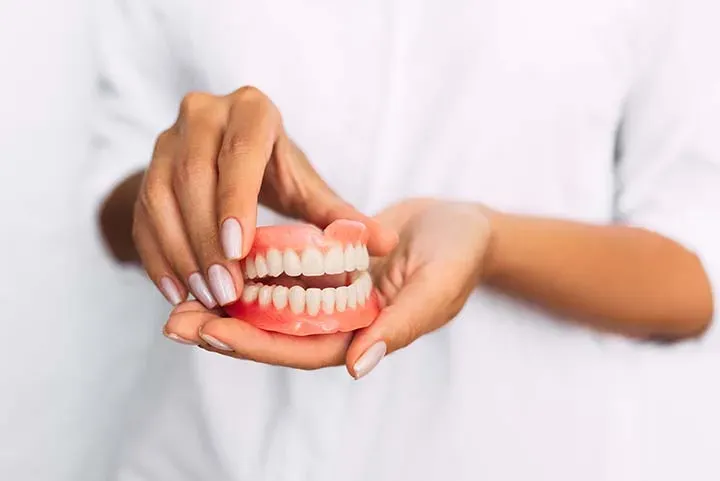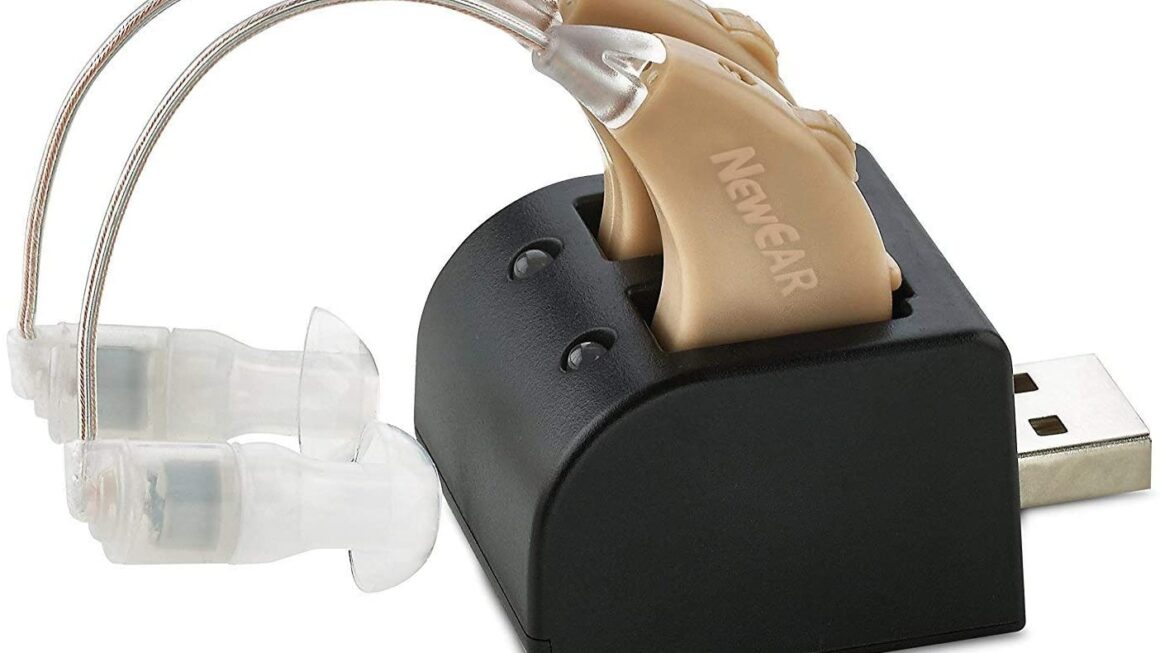Are you tired of hiding your smile because of missing teeth? Dentures can be a life-changing solution, restoring your confidence and allowing you to enjoy the foods you love once again. But with so many options available, how do you choose the right dentures for you? In this blog post, we’ll guide you through everything you need to know about dentures and help you make an informed decision. From understanding different types of dentures to considering factors such as fit and comfort, we’ve got all the information you need to find your perfect smile. So let’s dive in and discover how to choose the right dentures for YOU!
Understanding Dentures
Dentures are removable dental appliances designed to replace missing teeth and restore the function and appearance of your smile. They consist of artificial teeth attached to a gum-colored base, which is custom-made to fit comfortably in your mouth.
There are two main types of dentures: complete dentures and partial dentures. Complete dentures are used when all the teeth in either the upper or lower jaw need replacing, while partial dentures are used when only some teeth are missing.
Complete dentures can be further classified as conventional or immediate. Conventional dentures are made after any remaining teeth have been removed and the gums have healed, which typically takes several weeks. Immediate dentures, on the other hand, can be placed immediately after tooth extraction but may require more adjustments as they do not allow for natural gum healing during fabrication.
Types of Dentures Available
There are several types of dentures available to meet your specific needs and preferences. One option is conventional full dentures, which are used when all of your natural teeth have been removed. These dentures are custom-made to fit your mouth and provide a natural-looking smile.
Partial dentures are another option if you still have some remaining healthy teeth. These dentures fill in the gaps left by missing teeth and can be removable or fixed, depending on your preference.
For those who prefer a more stable and secure solution, implant-supported dentures may be the right choice. These dentures attach to dental implants that are surgically placed in the jawbone, providing added stability and preventing bone loss.
Flexible partial dentures offer flexibility and comfort compared to traditional rigid ones. Made from a lightweight material, they blend seamlessly with your natural gums for a more discreet appearance.
Immediate dentures are an option if you need immediate tooth replacement after extractions. They allow you to have functional teeth while waiting for your permanent set of dentures.
Each type of denture has its own benefits and considerations. Consulting with your dentist will help determine which option is best suited for you based on factors such as oral health, budget, lifestyle, and personal preference.
Factors to Consider When Choosing Dentures
When it comes to choosing the right dentures for you, there are several important factors that you should take into consideration. These factors will help ensure that you find dentures that not only fit well and function properly but also meet your specific needs and preferences.
One of the first things to consider is the type of denture that best suits your situation. There are several options available, including full dentures, partial dentures, implant-supported dentures, and immediate dentures. Each type has its own advantages and disadvantages, so it’s essential to discuss these options with your dentist before making a decision.
Another crucial factor is the material used in the construction of your dentures. Common materials include acrylic resin or porcelain for the teeth and a metal framework for stability. The choice of material can impact both durability and aesthetics.
The overall fit and comfort of your dentures should also be considered. Ill-fitting or uncomfortable dentures can lead to sore spots, difficulty speaking or eating, and even jaw pain. Your dentist will work closely with you to ensure proper measurements are taken so that your new set of teeth fits comfortably in your mouth.
Additionally, it’s important to think about maintenance requirements when selecting denture services. Some types may require more frequent adjustments or repairs than others. Understanding how much time and effort you’re willing to invest in caring for your new teeth will help guide your decision-making process.
Cost considerations cannot be overlooked when choosing dental prosthetics services like Denturist clinics near me . Dental insurance coverage varies widely depending on individual plans, so it’s crucial to understand what costs may be covered before committing to any treatment plan.
By taking these factors into account during the selection process ,you can make an informed decision about which type of Denturist service is best suited for restoring both functionality and confidence back into daily life without comprising oral health standards!
The Importance of Proper Fit and Comfort
One of the most important factors to consider when choosing dentures is ensuring they provide a proper fit and optimal comfort. Dentures that are ill-fitting or uncomfortable can lead to a host of issues, including difficulty eating, speaking, and even social interactions.
Proper fit is crucial because it ensures that your dentures stay securely in place while you go about your daily activities. Ill-fitting dentures may slip or shift, causing discomfort and embarrassment. They can also irritate the gums and cause sore spots.
Comfort is equally essential for denture wearers. After all, you want to be able to enjoy your meals without pain or discomfort. Dentures that don’t fit properly can create pressure points on the gums which can make eating unpleasant.
Additionally, wearing comfortable dentures contributes to overall oral health. If your dentures are causing pain or irritation, you may avoid wearing them altogether. This can lead to bone loss in the jaw and other oral health problems over time.
To ensure a proper fit and maximum comfort with your dentures, it’s essential to visit a qualified dentist who specializes in dental prosthetics. They will take precise measurements of your mouth and create custom-made dentures tailored specifically for you.
Remember always; prioritizing proper fit and comfort when selecting dentures will help enhance your quality of life by allowing you to eat comfortably, speak confidently, and maintain good oral health!
Caring for Your Dentures
Caring for Your Dentures is an essential part of maintaining their longevity and ensuring your oral health. Here are some tips to help you keep your dentures in top condition.
It’s important to handle your dentures with care. When removing or inserting them, be gentle and use both hands to avoid dropping or damaging them. It’s a good idea to place a towel on the counter or sink when handling your dentures to provide a soft landing if they accidentally slip from your grasp.
Cleaning your dentures regularly is vital for preventing plaque buildup and maintaining good oral hygiene. Use a soft-bristled toothbrush specifically designed for cleaning dentures, along with mild soap or a non-abrasive denture cleanser. Avoid using regular toothpaste as it can be too abrasive and cause damage.
After eating, rinse your dentures thoroughly under running water to remove any food particles that may have become trapped between the teeth or under the base of the appliance. This will help prevent bacteria growth and bad breath.
When not wearing your dentures, store them properly in a clean container filled with plain water or a specialized dental solution recommended by your dentist. Avoid using hot water as it can warp the shape of the appliance.
Regular dental check-ups are crucial even if you wear full dentures since these appointments allow professionals to monitor any changes in gum tissue health and ensure proper fitment of the appliance over time.
By following these simple care guidelines, you can maintain optimal cleanliness and prolong the lifespan of your dentures while keeping both gums and remaining natural teeth healthy!
Alternatives to Traditional Dentures
For those who are not suitable candidates for traditional dentures or simply want a different option, there are several alternatives available. One popular alternative is dental implants. Unlike dentures that sit on the gums, dental implants are surgically placed into the jawbone and act as artificial tooth roots.
Another alternative to consider is implant-supported dentures. These provide a more stable and secure fit compared to traditional removable dentures. Implant-supported dentures utilize dental implants as anchors, allowing the prosthetic teeth to be firmly attached.
Flexible partial dentures are another viable option for those who only need to replace a few missing teeth. Made from a flexible material, these partials blend seamlessly with your natural teeth and offer improved comfort compared to traditional metal or acrylic-based options.
Additionally, there is an innovative technique called All-on-4® that offers full arch restoration using just four strategically placed dental implants per arch. This approach provides patients with a fixed set of replacement teeth that look and function like natural ones.
When considering alternatives to traditional dentures, it’s crucial to consult with your dentist or prosthodontist who can evaluate your specific needs and recommend the best solution for you.
Conclusion
Choosing the right dentures is a crucial decision that can greatly impact your oral health and quality of life. By understanding the different types of dentures available, considering important factors such as fit and comfort, and learning how to properly care for them, you can ensure that you make the best choice for your individual needs.
Remember, it’s essential to consult with a qualified dentist or prosthodontist who specializes in denture services. They will assess your specific situation and guide you towards the most suitable option.
Whether you opt for traditional full or partial dentures, implant-supported dentures, or alternative solutions like dental bridges or dental implants, finding a solution that restores both function and aesthetics is key. Don’t hesitate to ask questions during consultations so that you fully understand all aspects of each treatment option.
With proper care and regular check-ups with your dentist, your new dentures can provide years of comfortable use. Remember to clean them daily using recommended products and techniques to maintain their longevity.
Choosing the right dentures means regaining confidence in your smile while being able to enjoy eating and speaking comfortably once again. So take the time to explore your options carefully before making this important decision – because when it comes to restoring oral function and improving overall well-being, investing in quality dental prosthetics is definitely worth it!












